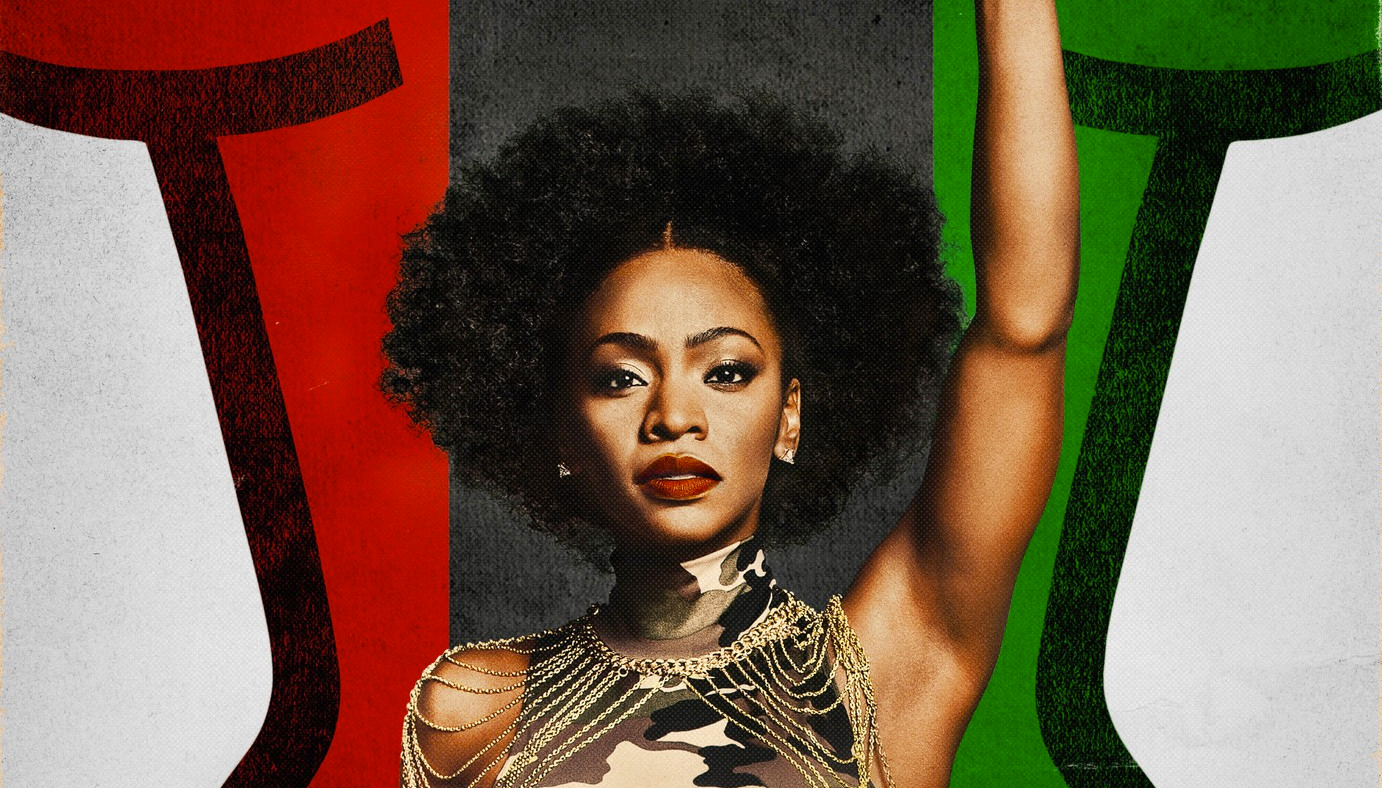Spike Lee’s ‘Chi-Raq’ is 2015’s Most Important Film
Spike Lee’s new movie Chi-Raq is a mess. Its tone careens drunkenly from one scene to the next, from bawdy to preachy, subtle to mawkish, sly to painfully obvious. It makes jokes that aren’t funny and exploits real tragedy to wring easy tears. And despite all that, everybody should see it.
Because while Chi-Raq has its fair share of problems, it’s also urgent and immediate in a way movies almost never are. It’s one of the only movies of 2015 that is first and foremost about the way we live in 2015. Watching Chi-Raq, and laughing, talking, and arguing about it afterwards, is enough to convince you we need more fiercely contemporary movies like it.
For the uninitiated, “Chiraq” is a portmanteau coined in the last decade to describe the historic and horrifying levels of gun violence on Chicago’s South and West Sides. In the opening of Lee’s Chi-Raq, the statistics cited are that 4,424 Americans died in Iraq from 2003 to 2011, while 7,356 were killed in Chicago from 2001 to 2015.
Those figures are so upsetting they seem initially at odds with the satirical plot of Lee’s Chi-Raq, which transposes the 5th-century B.C. Greek drama Lysistrata (which you might have had to read in high school) to modern day Englewood, one of Chicago’s poorest and violent neighbourhoods. The Greek heroine Lysistrata convinces her female Athenian peers to stop having sex with their men in an attempt to stop the Peloponnesian War; Englewood’s Lysistrata (Teyonah Parris) does the same with the women of Chicago, in a more hilariously vulgar way (“No peace, no pussy!”), to end a gang war between the fictional Spartans, led by a rapper with the stage name of Chi-Raq (Nick Cannon), and Trojans, led by a gangster named Cyclops with a bejeweled eye patch (Wesley Snipes). In both works, hijinks ensue, though Chi-Raq — successfully, just barely — tempers its jokes with unashamedly melodramatic scenes that directly address the pain of violence not yet sanitized by history.
To be clear, enjoying Chi-Raq is not an act of charity. It’s a mess, but it’s a funny, nuanced, compulsively watchable mess, as interesting as it is frustrating. Among the highlights are Parris’s sober, sexy performance (delivered just a year after being best in show in the similarly uneven-but-important Dear White People) and Samuel L. Jackson’s gleefully profane turn as Dolmedes, a one-man Greek chorus with no parallel in the original play. And while many of Lee’s later-career movies have looked drab and unpolished, Chi-Raq is as bright, colorful, and beautiful as an old-school Hollywood musical — a legacy the film deliberately invokes several times, especially in a late scene where a group of blue-balled men attempt to break Lysistrata and company’s abstinent resolve by blasting The Chi-Lites’ “Oh Girl” at them. (The strategy is called “Operation Slow Jams.”) The choreographed song-and-dance number that results is one of the strangest and best moments the movies have given us this year.
More importantly, for the purposes of this article’s argument, Chi-Raq’s satire is not softened by the remove of history; the murder rate in Chicago is getting worse, not better, and the film brazenly references most of the past two years’ racial tragedies beyond the city’s borders: Ferguson, Staten Island, Cleveland, Baltimore, Charleston. (One of the only deaths missed is Laquan McDonald’s, the teenager whose videotaped murder at the hands of a Chicago police officer was released a week before Chi-Raq hit theaters.)
Movies about such contemporary pain almost never get made, and that’s not just because most filmmakers are more timid than Lee (though that’s also true, often for the better). It’s because most movies cost millions of dollars and take more than a year to reach audiences. The safe bet is to avoid breaking news, lest the winds of popular opinion change before release.
This approach has yielded plenty of great movies, among them Spotlight, which is probably going to end up the consensus pick for best film of the year. A dramatization of the 2001 Boston Globe investigation that broke the Catholic priest sex abuse scandal, Spotlight is, empirically, a better movie than Chi-Raq. But it’s not an urgent film, except perhaps as an oblique argument to support your local (dying) newspaper. To cherry-pick another example, The Hurt Locker is an immaculate, essential work of art, but it wasn’t exactly going out on a limb to suggest, in 2008, that the war in Iraq had the potential to seriously fuck up its participants. Hell, we’re still mining the Vietnam War for bracing stories today, while the only major American release during the war was the jingoistic John Wayne bullshit of The Green Berets.
The debates that Chi-Raq has stirred — and I should point out that artists and writers I deeply respect like Chance the Rapper and Ta-Nehisi Coates have taken issue with it — represent a potential for movies that’s been all but untapped: to dive headfirst into still-current history and emerge with gutsy, flawed, artistic, and entertaining takes on it; to make a statement before there’s an accepted narrative to echo or challenge; to maybe even shape that narrative as it’s written.
Fifteen years from now, assuming the violence in Chicago has stopped or at least transformed into something still terrible but less volatile, someone will likely make an Oscar-winning masterpiece that more skillfully distills the issues at play than Chi-Raq did.
But why wait to engage? Love this movie. Hate this movie. But please, see this movie.










